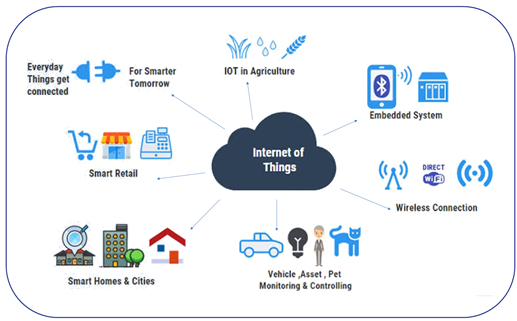The Sweet Life of Bettajelly
Exploring delicious recipes, fun food trends, and lifestyle tips that bring joy to your everyday.
When Your Toaster Knows You Better than Your Friends
Discover how your toaster can reveal secrets about you that your friends don't know. Is it time to rethink your kitchen companionship?
The Rise of Smart Appliances: How Your Toaster Knows Your Preferences
The rise of smart appliances is transforming our everyday lives, bringing unprecedented convenience and connectivity to our kitchens. Imagine a toaster that not only browns your bread to perfection but also remembers your preferred settings for various types of bread. Through the integration of the Internet of Things (IoT), these intelligent devices can learn from your habits and adjust their functionality accordingly. Forbes highlights how companies are incorporating AI algorithms to enhance user experience, making meal preparation easier and more personalized.
Moreover, smart toasters can connect to your smartphone, allowing you to customize settings remotely and receive notifications when your breakfast is ready. This level of convenience speaks to the growing trend of home automation, where everything from fridges to ovens is designed to optimize efficiency. As more households adopt these gadgets, the demand for personalized cooking experiences will likely soar. A Statista report projects significant growth in the smart appliance market, driven by consumer preferences for smart technology in their homes.

Are Smart Toasters the Future of Personalized Kitchen Appliances?
As technology continues to evolve, smart toasters are emerging as a prime example of how personalized kitchen appliances can revolutionize our daily routines. These innovative devices not only toast bread but also offer features like customizable browning levels, pre-set modes for various types of bread, and even mobile app integration to control and monitor your toasting preferences from your smartphone. According to TechRadar, smart toasters can store multiple user profiles, allowing family members to enjoy their preferred toasting settings with just a tap. This level of personalization not only enhances user experience but also contributes to making meal prep more efficient.
Moreover, the rise of smart appliances reflects a broader trend toward connected kitchens that prioritize convenience and customization. Smart toasters can connect with other smart devices, such as refrigerators and coffee makers, creating a seamless cooking experience that saves time and reduces energy consumption. For instance, imagine a morning routine where your toaster and coffee maker are synchronized to prepare your breakfast simultaneously, all managed through a single app interface. As noted by CNET, this integration not only offers functionalities beyond traditional appliances but also helps in optimizing kitchen workflow, ultimately leading to a smarter, more personalized culinary experience.
Can Your Toaster Read Your Mood? Understanding the Technology Behind Smart Devices
As smart technology continues to permeate our daily lives, the question of whether our appliances, like toasters, can gauge our emotional states becomes increasingly relevant. Devices equipped with artificial intelligence (AI) and machine learning (ML) can analyze user behavior and patterns, potentially allowing them to infer emotional cues. For instance, by connecting to apps that monitor user mood or interaction frequency, a smart toaster could adjust its browning settings based on the user's preferences and behaviors. This concept has been explored in publications such as Forbes, showcasing how interconnected devices can create a personalized user experience.
The technology behind such capabilities often involves advanced machine learning algorithms that analyze data from various inputs, including touch sensors and connectivity with other smart devices. This integration means that your toaster could potentially 'learn' your preferences over time, adjusting to your moods and even surprising you with features like toasting your bread to perfection when you seem stressed. As we explore the implications of these developments, it's crucial to consider their impact on user experience and privacy. For more insights into how AI is shaping the future of home appliances, you can read more at Wired.